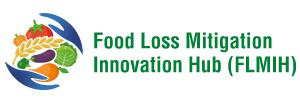
Project Description
This commodity systems assessment of Tomatoes in the wholesale market has the main objectives of recognizing the quality variation of the tomatoes in the wholesale market; recognizing which origins provide the best quality tomatoes; recognizing the reasons/postharvest practices affecting such differences (traceback); and recognizing the parameters that contributed to the postharvest loss.
In this study, background information on the loads is measured through the questionnaire. This information includes weight/volume of tomato received per day; locations (Suriyawewa, Jaffna, Ratnapura, Puttalam, Badulla, Any other); mode of transportation (Lorry, Van, Trucks); packaging (Wooden crates, cardboard boxes, gunny bags); storage at wholesale (cold storage, room temperature, Shady place, Exposed to sun); length of time at the wholesale market (Hours) and distributions from wholesale market (to retailer, consumer, supermarket). Sample random tomato boxes from each channel, in the wholesale market (Peliyagoda) are taken for quantitative and qualitative evaluation of losses.
Key Findings
Policy Implications
- Future studies should encompass the entire value chain, tracking tomatoes from the farm level to the wholesale market over an extended period
- Load tracking methodologies are challenging due to economic constraints
- Obtaining more representative samples could be helpful in drawing insights on the root causes of postharvest losses
Publication
Liyanage, J., Rajapakse, S., Weerahewa, D. and Rathnayake, S. (2023). Postharvest Losses and Quality Variations of Tomatoes in Wholesale Markets: A Case Study of Sri Lankan Supply Chain. 2023 International Research Conference of Sri Lanka Technology Campus, Colombo, Sri Lanka. 14th-15th December 2023.
